In the world of business, sometimes circumstances shift, necessitating a change in partnerships. Whether due to performance issues or evolving needs, terminating a vendor contract can be a delicate process that requires clear communication and professionalism. It's essential to approach this situation thoughtfully to ensure mutual respect and understanding, preserving the relationship for any future opportunities. If you're looking for guidance on how to navigate this process smoothly, keep reading for a detailed letter template that can help you effectively communicate your decision.
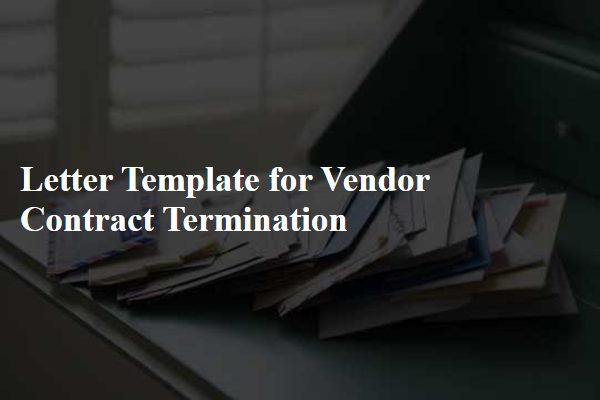
Clear Reason for Termination
Vendor contract termination can occur due to various circumstances, such as consistent delays in product delivery, poor quality of goods, or failure to meet agreed-upon service levels. For example, a business may experience significant disruptions if a supplier consistently fails to deliver materials on time, impacting production schedules and ultimately affecting customer satisfaction. In cases where the vendor's performance does not align with the expectations set out in the contract, the business may decide to terminate the contract after documenting instances of non-compliance. Additionally, recurring quality issues such as product defects or safety concerns can lead a company to seek alternative suppliers, ensuring that they uphold industry standards and regulatory requirements. The decision to terminate a vendor requires careful consideration and documentation to mitigate potential legal repercussions and maintain a professional relationship.
Termination Date and Notice Period
Contract termination involves a formal process that specifies the termination date and the notice period. A contract's termination date is the exact date when the agreement ends, and it must comply with the conditions stated within the contract or local laws. The notice period is typically the duration required before the termination becomes effective, often ranging from 30 to 90 days, allowing parties to address obligations or settle outstanding issues. For instance, a vendor contract might require a 60-day notice to ensure proper transition and minimize disruption to services. Proper documentation and communication of this termination notice help maintain professional relationships and protect against potential disputes.
Account Settlement and Final Deliverables
Vendors often face contract terminations due to various reasons, including performance issues or changes in business strategy. In such scenarios, a thorough account settlement is essential. This includes reconciling outstanding payments, ensuring all deliverables are submitted, such as software updates or product shipments, and addressing any liabilities. Key documents such as invoices and contracts, particularly those signed before termination, play a crucial role in this process. Clear communication channels must be established, often involving legal departments to facilitate the orderly conclusion of the business relationship. Timelines should be set for the completion of final tasks, ensuring both parties understand their responsibilities. Proper documentation of the entire process protects against future disputes.
Return of Property and Confidentiality
Termination of vendor contracts mandates proper procedures for return of property, such as equipment or materials, alongside adherence to confidentiality obligations. Legal documents should specify the timeline for returning all physical items, detailing the condition required upon return, to ensure compliance with company policy. Additionally, confidentiality clauses safeguard sensitive information such as trade secrets or client databases acquired during the contract term. The importance of maintaining these confidentiality agreements extends beyond termination, requiring vendors to securely handle data and prevent unauthorized disclosures in perpetuity. Such measures are crucial for protecting a business's intellectual property and ensuring ongoing trust in professional relationships.
Contact Information for Further Communication
When terminating a vendor contract, it is essential to establish clear lines of communication for further discussions. In the termination notice, include the vendor's primary contact person, their direct phone number, and email address. Specify alternative contacts within your organization, such as the legal department or procurement officer, including their contact details for potential clarifications or questions post-termination. This structured approach ensures all parties have access to the necessary information for a smooth transition, minimizing disruptions to ongoing operations. It also maintains a professional relationship, facilitating discussions regarding outstanding matters or final settlement arrangements.
Letter Template For Vendor Contract Termination Samples
Letter template of vendor contract termination because of changed business needs.
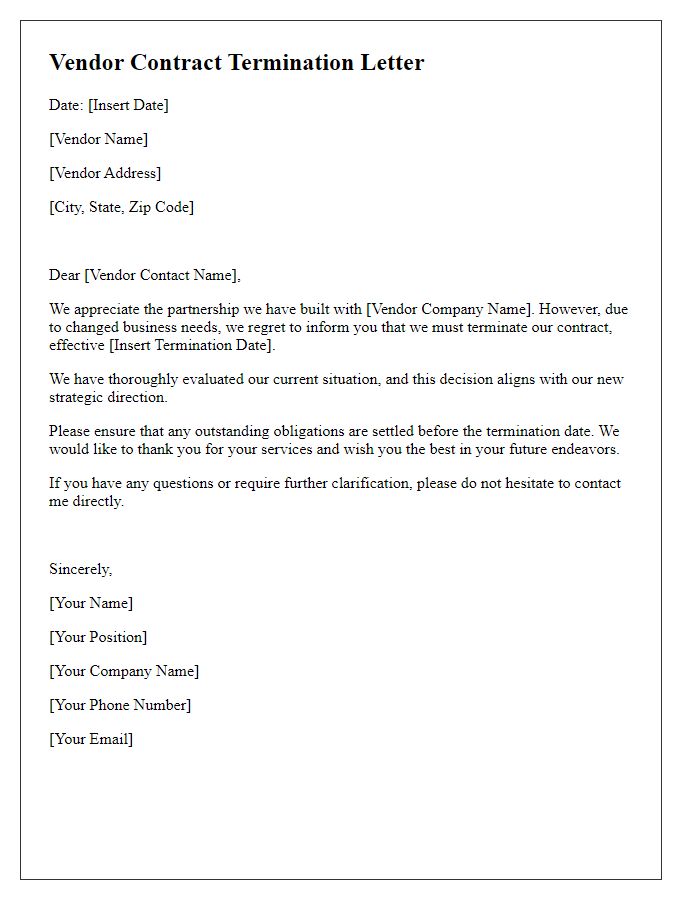
Letter template of vendor contract termination due to poor service quality.
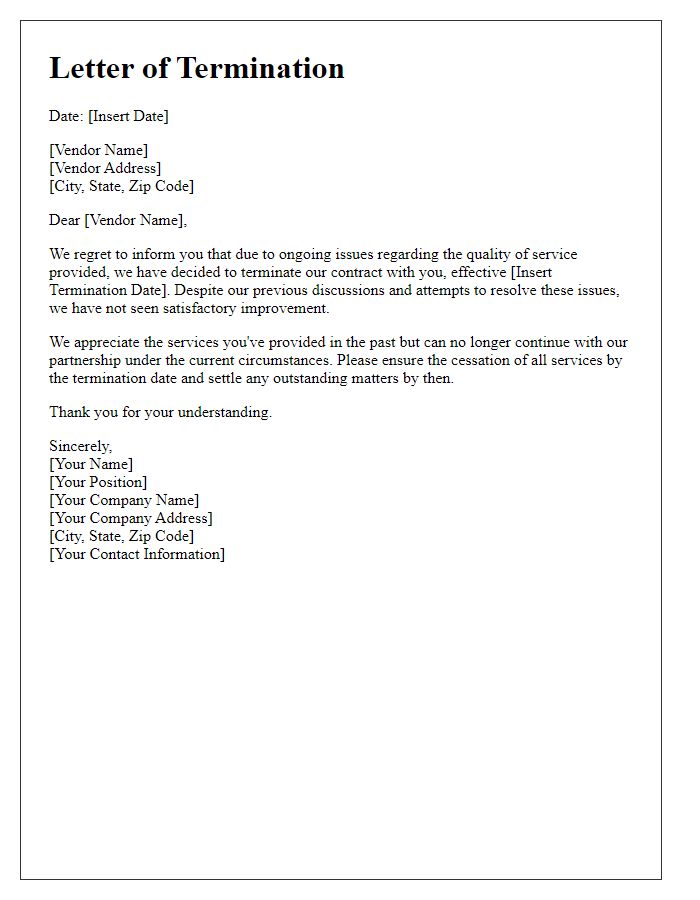
Letter template of vendor contract termination following a review period.
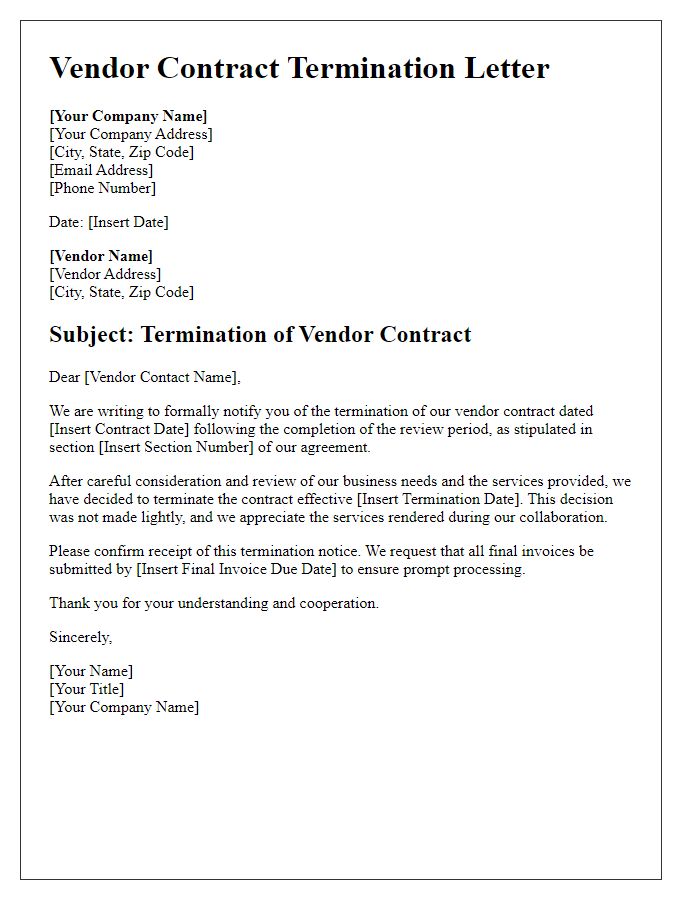
Letter template of vendor contract termination while seeking a new partner.
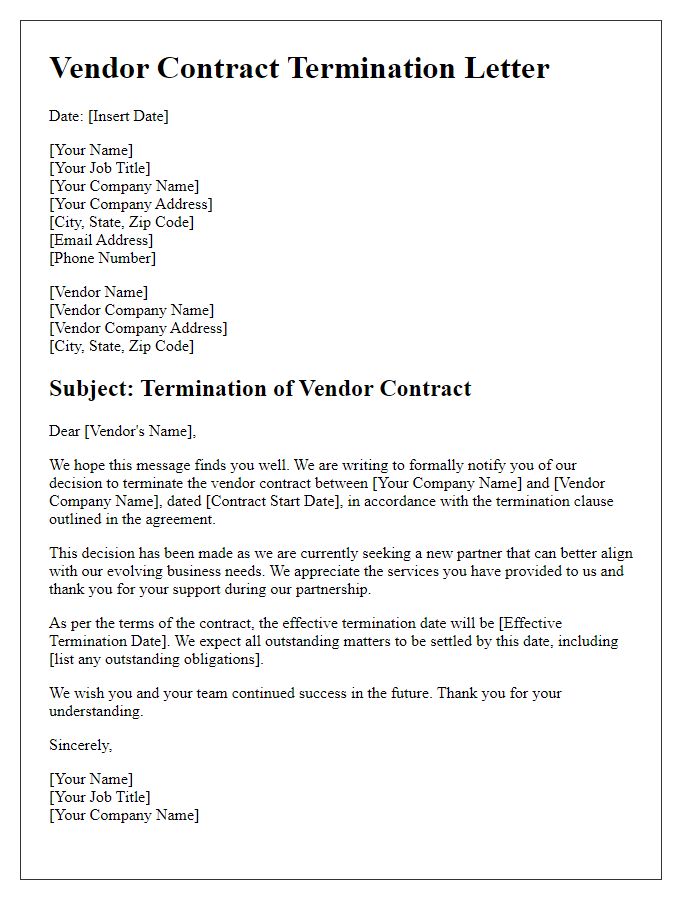

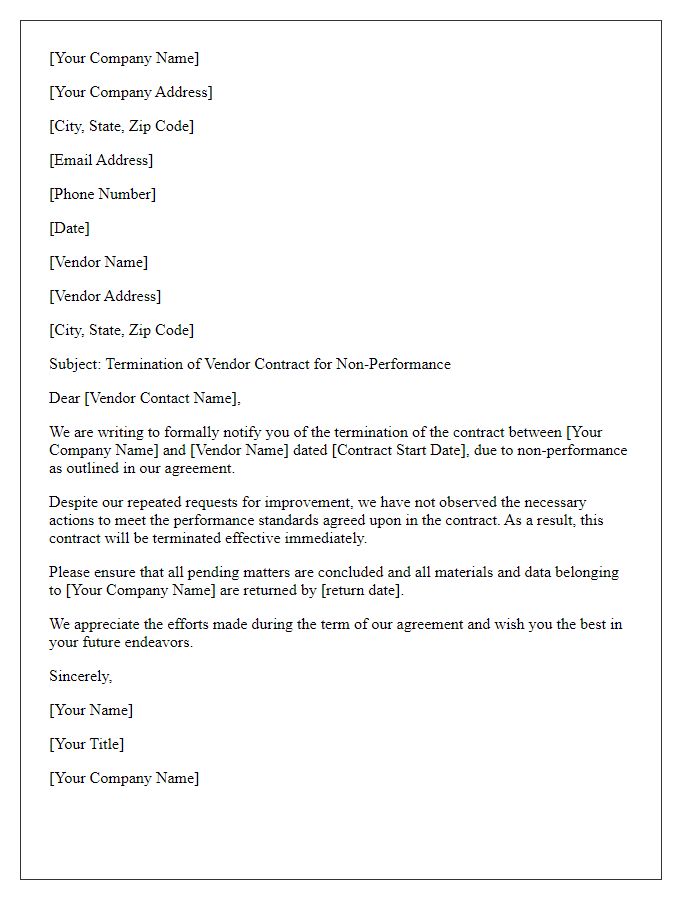
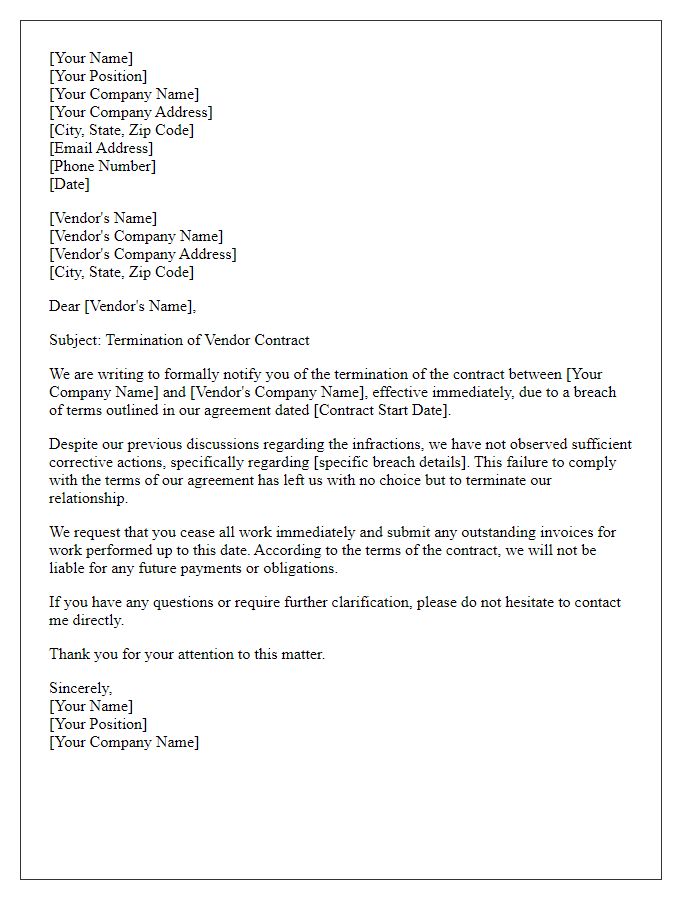
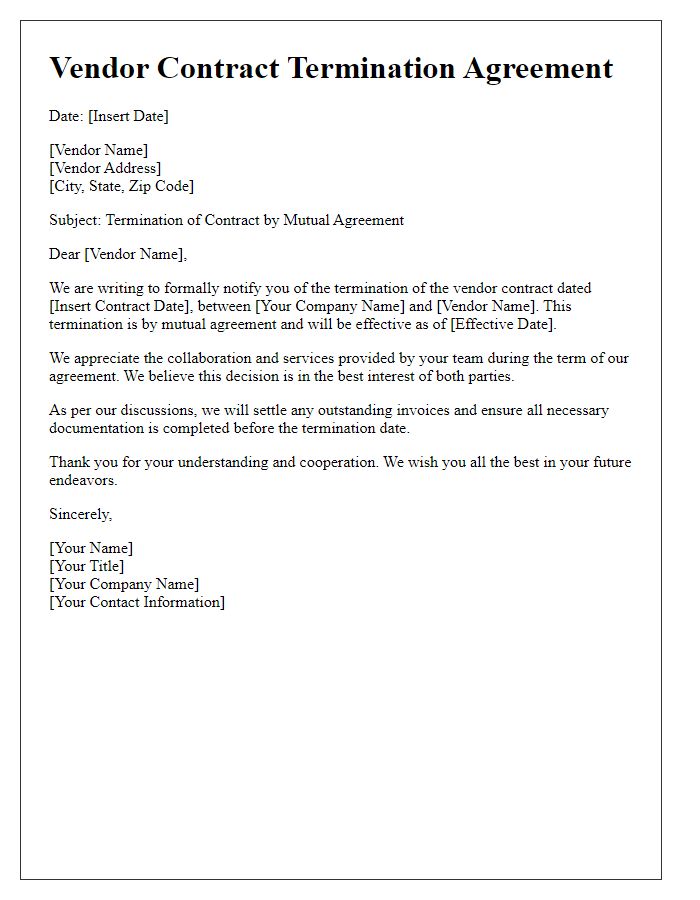
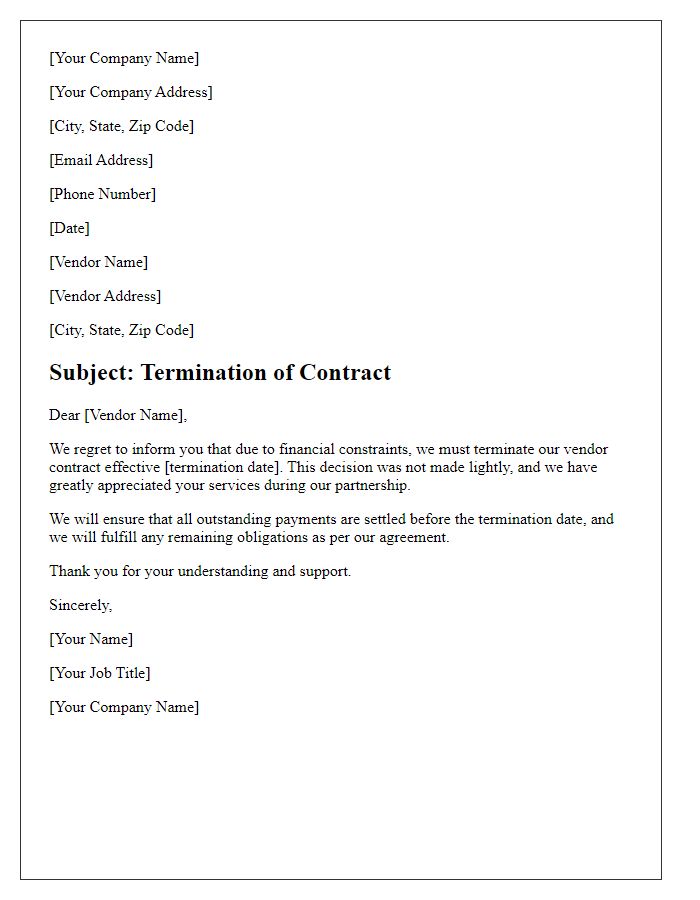
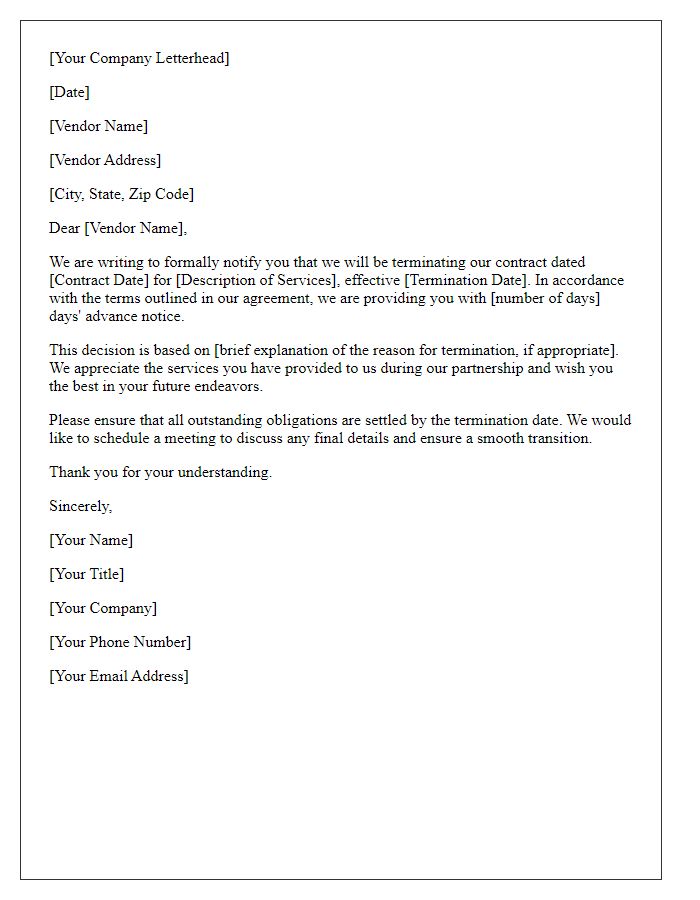
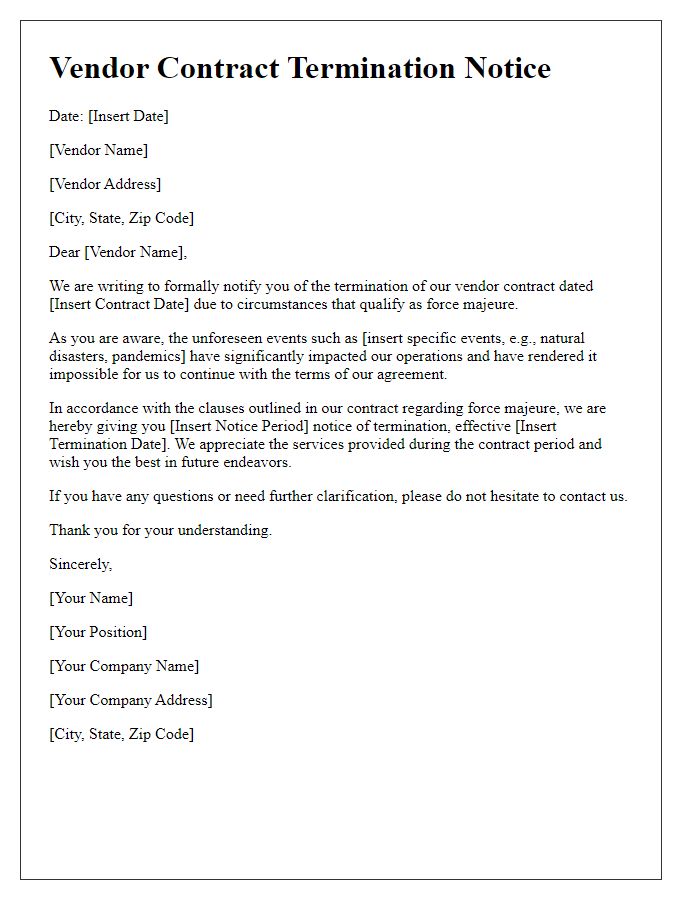


Comments